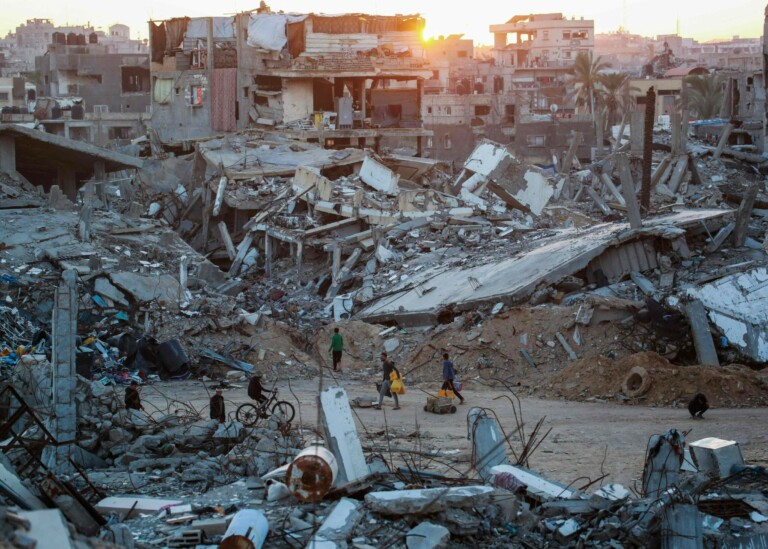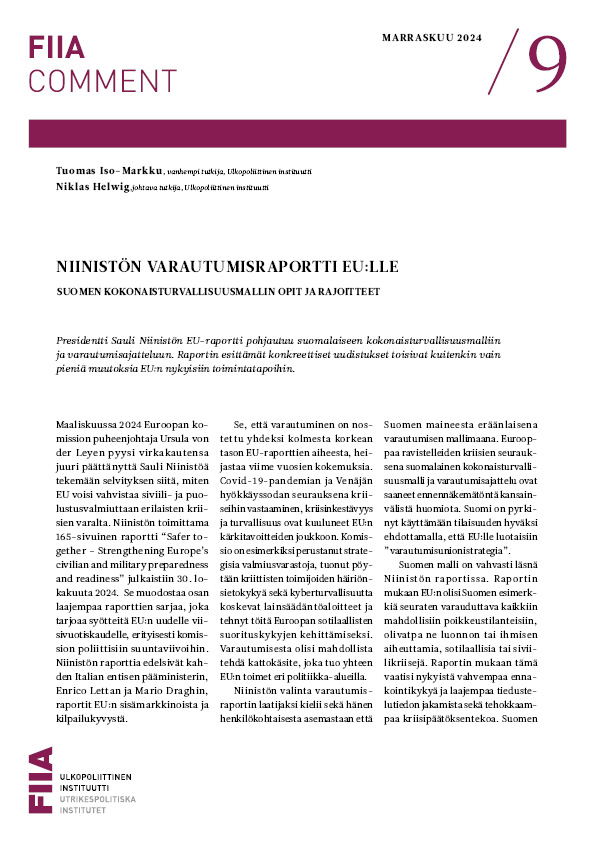The Southern Gas Corridor will make EU energy policy more dependent on Turkey and Azerbaijan. The revival of the Turkish Stream gas pipeline may also contribute to this trend.
The Southern Gas Corridor will make EU energy policy more dependent on Turkey and Azerbaijan. The revival of the Turkish Stream gas pipeline may also contribute to this trend.
The geopolitical scenario is changing swiftly in South-Eastern Europe. Following Vladimir Putin’s and Recep Tayyip Erdoğan’s meeting on 9 August 2016, relations between Russia and Turkey are improving. On the other hand, the EU-Turkey relationship has deteriorated in the aftermath of the failed coup d’état in Turkey. These developments have far-reaching consequences for the EU in several key policy fields, one of which is energy security.
Turkey plays an important role as a transit country in the EU’s plans to diversify its gas imports. The EU is attempting to create a Southern Gas Corridor to import gas from Azerbaijan via Georgia and Turkey.
By 2018, a consortium formed by BP (British Petroleum) with the Azeri and the Turkish state energy companies, SOCAR and BOTAS, should build the Trans-Anatolian Pipeline (TANAP), running for over 1,800 kilometres from the Turkish-Georgian border to the Turkish-Greek border. Here, TANAP will be connected to the Trans-Adriatic Pipeline (TAP), also under construction, in order to channel the gas to Greece, Albania, Italy and further to the West. TANAP and TAP are a small-sized replacement for the defunct Nabucco project, as they are meant to give the EU access to Caspian gas resources while bypassing Russian territory.
In this context, the instability and authoritarian developments in Turkey constitute a major issue for the EU. The blueprint for the Southern Gas Corridor implies that the EU has to accept a partnership with the increasingly autocratic Azeri government, which is using revenues from energy exports to rearm in view of a potential war against Armenia. The developments in Turkey call into question the desirability of the project. Reliance on Turkey as a transit country for EU energy imports would strengthen Ankara’s overall bargaining position vis-à-vis Brussels.
Furthermore, the rapprochement between Russia and Turkey has revived the Turkish Stream pipeline project. On 1 September, Turkey’s energy minister Berat Albayrak met Gazprom CEO Alexei Miller in Istanbul to discuss the project. Turkish Stream would transport Russian gas from the Northern Caucasus to European Turkey via the Black Sea, and from there to the EU. The pipeline is part of Gazprom’s plan to end its reliance on Ukraine as a transit country and consolidate its market share for gas exports to Europe and Turkey.
In its current format, Turkish Stream would consist of two parallel pipelines, each transporting 15.75 billion cubic metres of gas per year. The first pipeline would have the Turkish market as its final destination and would allow Moscow to re-route its gas exports – which currently transit Ukraine and the Balkans – to European Turkey. As Turkey is one of the few growing markets for Gazprom, there is a good chance that this section will be built before 2020. Prospects for the second pipeline, exporting gas to the EU, are more complex and largely depend on developments in EU-Russia relations.
In this conundrum, the EU has several options that need to be reassessed regularly based on the evolution of actual gas demand among its South-Eastern European members. One is that of maintaining the current status quo, with Ukraine as a transit country. Gazprom itself has indicated that this continues to be a valid option, particularly if Nord Stream 2 is built and Ukraine remains a transit country only for exports towards South-Eastern Europe.
In this case, Brussels would have to monitor the Russian-Ukrainian energy relationship and make sure that potential crises do not escalate into supply disruptions, such as those that brought South-Eastern European economies and societies to a standstill in January 2009 due to the lack of gas.
Some Southern European countries do not seem happy with this option. In February 2016, the Italian company Edison and the Greek Depa signed a memorandum of understanding with Gazprom to import Russian gas via the Black Sea and unspecified ‘third countries’, which could be either Turkey or Bulgaria. If Southern European countries and Gazprom insist on creating a new supply route that makes them independent of Ukrainian transit (just as Nord Stream 2 would do for North-Western Europe), the EU should try to influence the Turkish Stream project so that it conforms to its needs. A new pipeline deepening EU dependence on both Russia (as a supplier) and Turkey (as a transit country) appears to be the least desirable option. Instead, the EU could propose a route that lands directly on its own territory, most likely Bulgaria, and apply existing regulations to the pipeline.
Whichever of these options the EU eventually chooses, it will be hard to reconcile with the key values (such as democracy promotion) of its declared normative foreign policy, as most supplying and transit countries in the Eastern neighbourhood are authoritarian states. While Brussels has limited power to influence domestic developments in these countries, it could progressively strengthen its energy independence
and thus stop financing them through the purchase of fossil fuels. Since the Ukraine crisis, the EU has become warier of its energy relationship with Russia. However, it is still keen on deepening its energy dependence on Azerbaijan (and thus on Turkey as a transit country) – despite the fact that a European Parliament resolution from September 2015 stated that the country had ‘suffered the greatest decline in democratic governance in all of Eurasia over the past ten years’.
In this respect, the main challenge for the EU resides at home. As long as domestic fossil fuel companies play a key role in shaping energy policy decisions, the EU will delay its conversion to a carbon-free economy (according to the EU’s Energy Roadmap 2050, greenhouse gas emissions must be reduced by 80–95% by 2050, compared to 1990 levels), maintain its reliance on fossil fuels, and be forced to accept undesirable compromises with Azerbaijan, Turkey or Russia.








